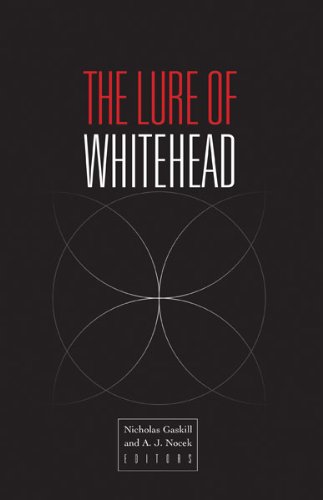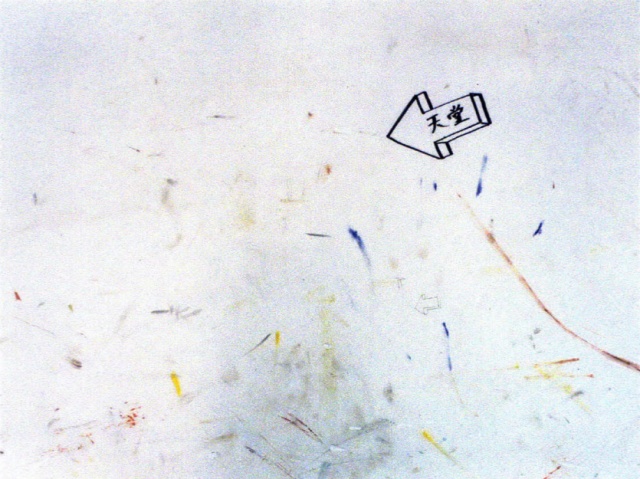John Cage: How To Get Started (2010)
Filed under booklet | Tags: · creativity, improvisation, performance

“John Cage’s first and only performance of How to Get Started on 31 Aug 1989 was conceived of almost as an afterthought–a performance substituting for another that had been previously planned. In his performance, delivered at a sound design conference in Nicasio, California, Cage talks about the difficulty of initiating the creative process, and about improvisation, a subject about which he had long been deeply ambivalent. He proposes a collaborative framework in which sound engineers capture and subsequently layer his extemporized monologue, which consisted of ten brief commentaries on topics then of interest. This amounted to an experiment having to do with thinking in public before a live audience.”
The publication also features commentaries by Laura Kuhn, Aaron Levy and Arthur J. Sabatini.
Publisher Slought Books, Philadelphia, and John Cage Trust, 2010
Open access
ISBN 0981540961, 9780981540962
19 pages
Nicholas Gaskill, A. J. Nocek (eds.): The Lure of Whitehead (2014)
Filed under book | Tags: · abstraction, bifurcation, consciousness, constructivism, creativity, difference, ecology, feeling, god, immanence, life, mereotopology, metaphysics, nature, ontology, perception, philosophy, posthuman, science, society, subject, temporality, time, vitalism

“Once largely ignored, the speculative philosophy of Alfred North Whitehead has assumed a new prominence in contemporary theory across the humanities and social sciences. Philosophers and artists, literary critics and social theorists, anthropologists and computer scientists have embraced Whitehead’s thought, extending it through inquiries into the nature of life, the problem of consciousness, and the ontology of objects, as well as into experiments in education and digital media.
The Lure of Whitehead offers readers not only a comprehensive introduction to Whitehead’s philosophy but also a demonstration of how his work advances our emerging understanding of life in the posthuman epoch.”
Contributors: Jeffrey A. Bell, Nathan Brown, Peter Canning, Didier Debaise, Roland Faber, Michael Halewood, Graham Harman, Bruno Latour, Erin Manning, Steven Meyer, Luciana Parisi, Keith Robinson, Isabelle Stengers, James Williams.
Publisher University of Minnesota Press, 2014
ISBN 9780816679959
ix+427 pages
Review: Ronny Desmet (Constructivist Foundations, 2015).
PDF (updated on 2021-3-9)
Comment (0)Winnie Won Yin Wong: After the Copy: Creativity, Originality and the Labor of Appropriation: Dafen Village, Shenzhen, China, 1989-2010 (2010)
Filed under thesis | Tags: · 1990s, 2000s, appropriation, art, authorship, china, conceptual art, contemporary art, creativity, labour, painting

“Since 1989, Dafen village in Shenzhen, China, has supplied millions of hand-painted oil-on-canvas paintings each year to global consumer markets. Accused of copying Western masterpieces, and spurred by the Chinese party-state’s creative industry policies, Dafen village’s eight thousand painters have been striving to become original artists. Simultaneously, conceptualist artists from outside Dafen village have engaged with the creative alienation of Dafen painters, by purchasing their labor in works of appropriation art. This study examines the discourses of creativity, originality, and appropriation that frame Dafen’s painting production, and sets them against an ethnography of flexible work in the South Chinese painting trade. It explores the myriad ways in which Dafen village lends itself to intellectual and aesthetic explorations of the separation of painting labor from conceptual labor, as enacted in both modernist and postmodernist framings of artistic authorship.
The study begins by charting the historical categorization of Chinese ‘export painting’ and the emergence of the ‘painting factory’ as a cultural imaginary of Sino-Western trade. It then examines the political stakes of ‘creativity’ as constructed in Dafen television propaganda made by the national and local party-state. Then, turning to a single Vincent van Gogh-specialty workshop and the transnational wholesale and retail of van Gogh trade paintings, it theorizes the relationship of ‘craft’ to modernist authorship and signature style. Finally, it scrutinizes cosmopolitan conceptual artists’ and designers’ collaborations with Dafen painters, exploring the ethical and aesthetic terms of universal creativity raised by the Dafen ‘readymade’. Establishing continuities between Dafen production and the making of ‘high’ art while challenging their putative antinomies, this study shows how the ideology of individual creativity undergirds the cultural industry policies of the local party-state, the consumer demand for authentic craft, and the appropriation of labor in contemporary art.” (Abstract)
Thesis, Ph. D. in History, Theory, and Criticism of Art and Architecture
Dept. of Architecture, Massachusetts Institute of Technology, 2010
Supervisor: Caroline A. Jones
410 pages

